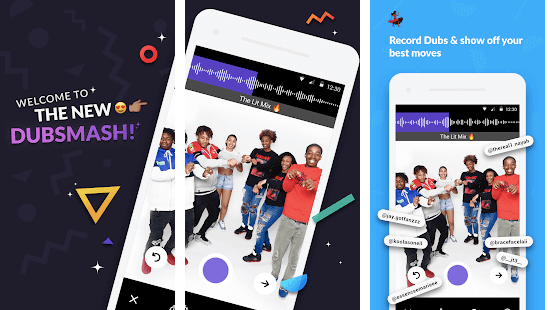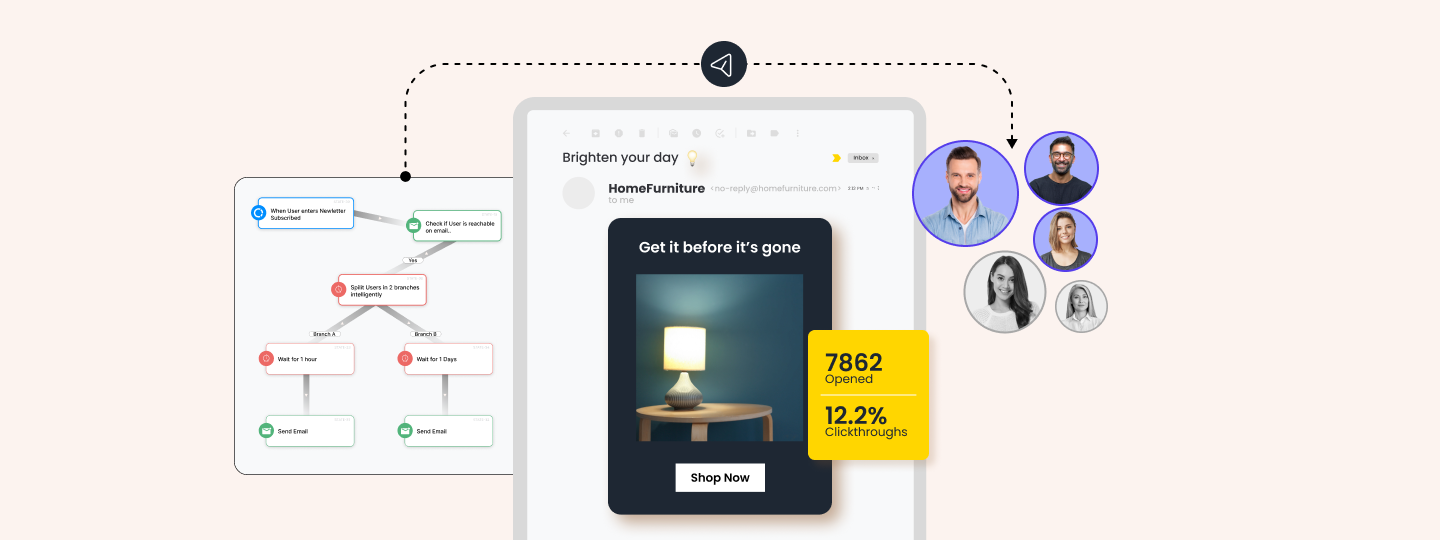You did it. You’re done building your mobile app. All the hard work and caffeine-fueled late nights in the office were worth it, because your app is one-of-a-kind, jam-packed with useful features, and sure to impress.
Now all that’s left to do is sit back and watch your app effortlessly skyrocket to the top of the app charts and into the hall of fame, right?
Well … no. It will soon become clear that getting the app built and into the app store is just the start of the journey. Now you’ve got the arduous task of finding potential users, getting them to download the app, and keep them coming back on a regular basis.
The road to the top can get bumpy, but building a loyal user base can be extremely rewarding. While there isn’t a one-size-fits-all formula for mobile app marketing success, there are some core elements your strategy needs.
Here’s how to get on the right path to strong user acquisition and retention for your apps.
Table of Contents:
1. Dedicate proper time and resources
2. Maximize content promotion across all platforms
3. Boost downloads with Marketing Automation
4. Master the art of first impressions
5. Make room For innovation
1. Dedicate proper time and resources

All great marketers know you shouldn’t undervalue the power of a well-designed mobile app. Some of the benefits include:
- Superior brand recognition
- Improved customer engagement
- Greater customer acquisition
- Additional income
Yet, when it comes to mobile apps, so many companies are still making the tragic mistake of not dedicating appropriate resources to updating them or marketing them properly.
Even the best app in the world is useless if no one is using it regularly.
To market your app properly, you’ve got to know your Key Performance Indicators (KPIs) or metrics, set goals around those KPIs, and devote resources and time to making the app marketing campaign a success.
The KPIs you choose should be realistic, measurable, and specific. Common mobile app metrics for mobile marketing include cost-per-download, app store rankings, organic user acquisition, and loyal user acquisition.
That last one is essential because it isn’t downloads that turn serious revenue, but rather loyal users who actually turn that app download into revenue for your business by using it and promoting it.
So on to the million-dollar question: How much should you spend on mobile marketing?
Again, there’s not a one-size-fits-all answer.
The exact figure will vary by industry and company size, but it’s worth noting that in 2017, global users spent, on average, 89% of their mobile device time in a mobile app, versus 11% on the web.
With desktop and web traffic fading away, every company should be investing heavily in their mobile presence to stay competitive.
2. Maximize content promotion across all platforms

Generating pre-launch buzz is essential to your mobile app marketing strategy. Why? Because only 40% of mobile users search for apps in app stores. That means you’ve got to go where your users are, and provide valuable content to showcase your new mobile app.
When it comes to content promotion, it never hurts to emulate what the pros are doing. That means:
- Tweak your landing page copy to include your mobile app
- Preview the app with sneak-peek articles, videos, and other teaser content to get customers excited about the app
- Send out press releases to journalists and industry-adjacent websites to spread the word
- Use guest blogging to reach a wider audience
- Seek out relevant influencers of your target market and ask them to review the app
- Use mobile advertising to showcase a landing page with email nurturing cadences designed to inform subscribers of launch
- Create YouTube videos to share on social media that include step-by-step instructions for how the app will work and how it solves the user’s problems
App downloads typically peak in the first few weeks after the launch date, so generating pre-launch buzz can pump up those initial download numbers and help you retain momentum well into deploying your post-launch tactics.
3. Boost downloads with Marketing Automation

There are dozens of effective mobile app marketing tactics, but by far the best ROI comes from marketing automation.
Marketing automation plays a critical role in mobile app marketing by freeing up human resources and capturing and nurturing leads.
Some examples of marketing automation at work are:
- Using LinkTexting to drive desktop and web traffic directly to app download pages
- Exit pop-ups on a website, directing potential users to the mobile app landing page or download page
- Email sequences that nurture potential users by educating them on how an app works and ending with a call-to-action (downloading the app)
One example of marketing automation at work is Dubsmash, a karaoke-style video messenger app that exploded with 50 million downloads across the world, thanks, in part, to marketing automation.

In the app itself, Dubsmash created marketing automation that allowed users to recommend friends via specific invite links that went straight to the appropriate app store where they could download Dubsmash.
4. Master the art of first impressions

The best marketing strategies in the world mean nothing if people don’t begin using the app right away and then continue to use it. Here’s where perfecting your first impression via onboarding and personalization becomes an essential component of your marketing strategy.
To begin, it’s important to market the experience the app offers vs. the app itself.
That’s because it’s no longer a novelty to have an app. Everyone has dozens of apps on their phones, and at least a handful they never use.
If you focus on keeping your app’s value proposition simple and clear, then consumers are more likely to download it and use it.
That should include centering your store description and content marketing materials around how the app simplifies users’ lives, and how the experience the app provides is different from anything else available.
The average app loses 77% of its daily active users within the first three days after install. Share on XBeyond setting those initial expectations, it’s crucial to follow through by onboarding new users properly. Doing so promotes retention and sharing, which are critical in the early stages of app marketing.
According to Andrew Chen, the average app loses 77% of its daily active users within the first three days after install.
In order to promote retention through onboarding, try these tactics:
- Give interactive tours of the app
- Teach users how to complete key tasks through gentle prompts
- Add contextual tips throughout the app to focus attention
- Provide sample data to showcase a finished workspace
- Invite users to personalize the app so they feel invested in it
5. Make room for innovation

Don’t be afraid to try new things with your app marketing strategy. Shaking things up doesn’t mean you have to reinvent the wheel, either.
In fact, you can borrow promotion ideas and strategies from other industries to market your app.
Check out these notable and innovative mobile app marketing strategies from big brands:
- Avis used relatable influencer marketing to garner 57,000 new app downloads.
- Tinder created an addictive dating app by creating a gamified user experience.
- Starbucks got 21% of their transactions to come from mobile by utilizing a loyalty rewards program.
These are just a few of the countless trendsetting apps that have facilitated massive growth with innovative app marketing strategies.
Growing your mobile app doesn’t require complex marketing strategies. All you need is a proper marketing budget, a thoughtful onboarding experience, some buzz-generating content, and a dash of innovation.
If you can master those vital elements of your marketing mix, you’ll be topping the app store charts in no time.
Bonus Read – A Marketer’s Guide to Mobile Push Notifications.


































 Prakhya Nair
Prakhya Nair
 Ananya Nigam
Ananya Nigam
 Harshita Lal
Harshita Lal



